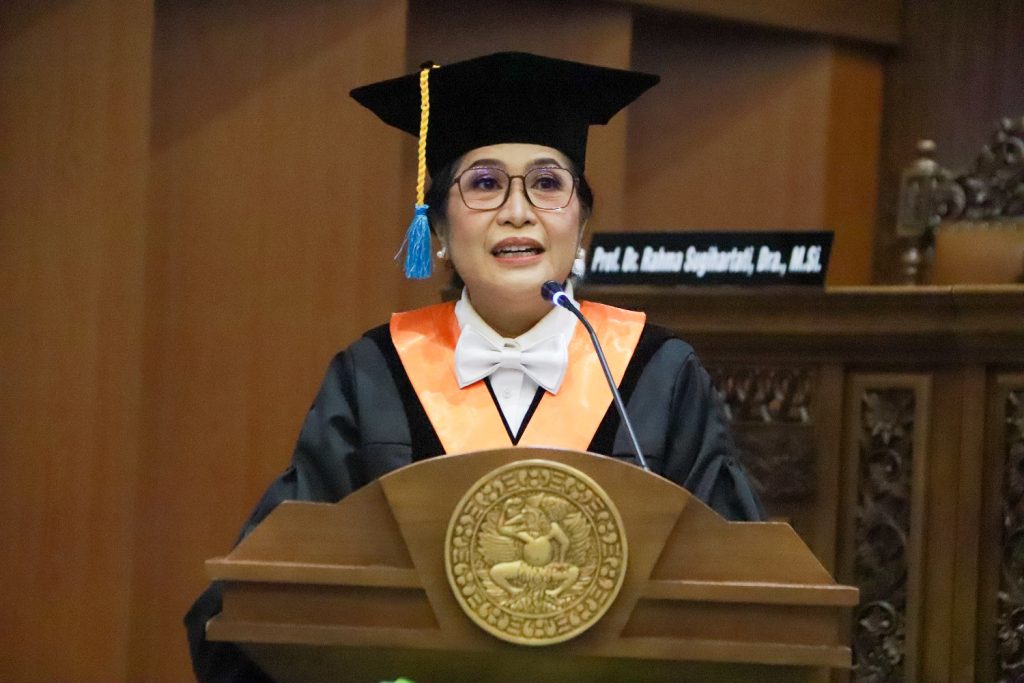UNAIR NEWS – Prof Dr Rahma Sugihartati Dra MSi has celebrated her proudest moment on Wednesday morning, August 10, 2022. She was inaugurated as Professor of Information Science Universitas Airlangga (UNAIR) at Garuda Mukti Hall, UNAIR Management Office.
In her professorship oration, she disseminated a research entitled The Paradox of the Development of the Information Society: Between Literacy and the Digital Gap .” In her oration Prof. Rahma described the landscape of contradictions in the information society due to the development of digital technology.
On the one hand, the digital age allows the emergence of a more productive, active, and creative participatory culture so communities and democratic processes can grow even more. But on the other hand, the information society in the digital space often found dehumanized.
Domination is becoming more consolidated because digital technology also renews control and supervision mechanisms in society. Prof. Rahma said that the development of information science is needed so that digital technology does not turn into something called juggernaut modernity.
“Juggernaut modernity is a theory where there is a giant machine that can destroy various aspects of human life because of human failure to control the machine. The role of information science is so that the paradox of this digital age can be resolved with a strong social foundation and based on humanitarian principles,” said the lecturer of the Information and Library Science study program UNAIR.
Existing paradox
Prof. Rahma said that the pervasive use of digital technology in people’s lives have an impact on the level of production and consumption of information, which skyrocketed. Therefore, this paradoxical aspect is present in various parts of society. The first aspect is socio-political.
Prof. Rahma explained that technology encourages the development of disinformation, misinformation, and hate speech. Moreover, it is also a medium for cultivating intolerant and radical ideas that damage social harmony.
“When the effect of information explosion cannot be responded selectively and critically, people will become victims of the ideological interests of power. Moreover, various forms of cyberporn and cybercrime also increase. Meanwhile, education to improve digital literacy and information selection is still not comprehensive,” said the UNAIR alumna.
The second aspect that Prof. Rahma elaborates was economics. She said that economic transformation to a digital world had an ambivalent impact because not all community groups could take advantage of it. Community groups such as MSMEs have to deal with technology-literate corporate forces with large capitals, which are capable of taking advantage of the digital economy.
“This gives rise to the digital gap in accessing the benefits of technology. Moreover, with the existence of big data-based technological innovations, which can capture the development of information in a super-fast society, new gaps have also emerged. It is called the algorithm’s divide, where actors with large capital can understand and manipulate people’s movements according to their interests,” she explained.
Prof. Rahma emphasized that this landscape should be a collective ‘homework’. Digital transformation is unavoidable. However, this paradox should not be perpetuated, where the development of digital technology benefits certain groups and marginalizes other groups. (*)
Author: Pradnya Wicaksana
Editor: Binti Q. Masruroh









